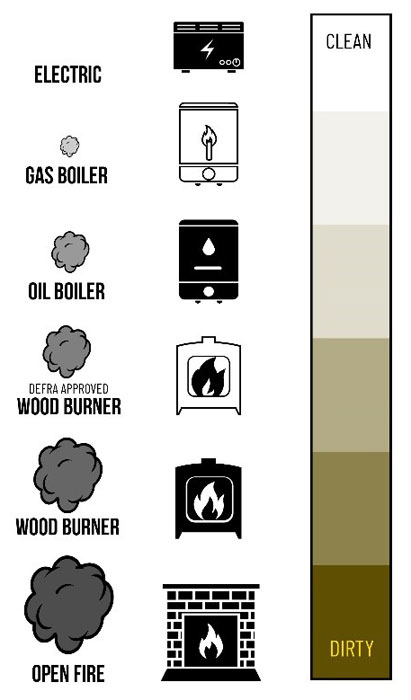How polluting is your heating?

For most homes in Oxford, there is a cleaner, safer alternative to using a wood burning stove.
How polluting is your heating?
With the rise in energy prices, it might be tempting to use a wood burner instead of an electric or gas boiler. However, wood burning stoves are amongst the most polluting ways to generate heat.
Much cleaner and less harmful alternatives are available, which heat up your home, but not the planet, and are less harmful to your health.
Particulate pollution and the impact on health
Particulate pollution refers to a mix of tiny solid and liquid particles that are in the air we breathe.
Some particulates can be seen with the naked eye such as fine sand and pollen. Others are so small they can only be detected using an electron microscope.
These particulates are especially harmful to health, and fall into two categories:
- PM10: inhalable particles, with diameters generally 10 micrometers and smaller.
- PM2.5: fine inhalable particles, with diameters generally 2.5 micrometers and smaller.
There is a direct link between the size of particles and their potential for causing health problems. Small particles pose a greater risk because they can get deep into your lungs and enter your bloodstream.
Particulate pollution can have a serious impact on human health. It is especially harmful to children, the elderly, and those with illnesses or conditions such as asthma and emphysema.
In 2019, 5.52% of all deaths in people in Oxford aged 30+ occur due to long-term exposure to PM2.5.
What if I have no other choice?
For most homes in Oxford, there is a cleaner, safer alternative to using a wood burning stove. However, for some people, these stoves are the only option for heating their homes.
If you have no other option but to use a wood burner, please read our How to reduce your impact page for further advice.
Energy saving advice
More information on energy saving advice, measures, and grants can be found here:

